- News
- Reviews
- Bikes
- Components
- Bar tape & grips
- Bottom brackets
- Brake & gear cables
- Brake & STI levers
- Brake pads & spares
- Brakes
- Cassettes & freewheels
- Chains
- Chainsets & chainrings
- Derailleurs - front
- Derailleurs - rear
- Forks
- Gear levers & shifters
- Groupsets
- Handlebars & extensions
- Headsets
- Hubs
- Inner tubes
- Pedals
- Quick releases & skewers
- Saddles
- Seatposts
- Stems
- Wheels
- Tyres
- Tubeless valves
- Accessories
- Accessories - misc
- Computer mounts
- Bags
- Bar ends
- Bike bags & cases
- Bottle cages
- Bottles
- Cameras
- Car racks
- Child seats
- Computers
- Glasses
- GPS units
- Helmets
- Lights - front
- Lights - rear
- Lights - sets
- Locks
- Mirrors
- Mudguards
- Racks
- Pumps & CO2 inflators
- Puncture kits
- Reflectives
- Smart watches
- Stands and racks
- Trailers
- Clothing
- Health, fitness and nutrition
- Tools and workshop
- Miscellaneous
- Buyers Guides
- Features
- Forum
- Recommends
- Podcast
news
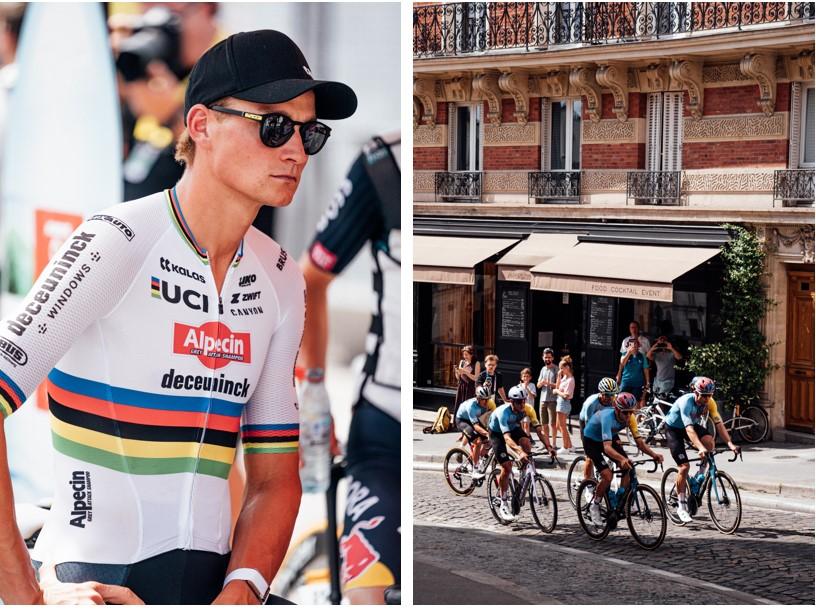 Mathieu van der Poel / Belgian team recon Olympic road race circuit (Zac Williams/SWpix.com)
Mathieu van der Poel / Belgian team recon Olympic road race circuit (Zac Williams/SWpix.com)“Pointless” 30kph speed limit on key climb sees pre-race favourite Mathieu van der Poel skip Olympic road race recon
It turns out that British time triallists aren’t the only bike racers affected by local councils implementing lowered speed limits in towns and cities on safety grounds – world champion Mathieu van der Poel opted to forgo yesterday’s organised mass reconnaissance of the finishing circuit of Saturday’s Olympic road race, arguing that he “didn’t see the point” of adhering to the 30kph speed limit imposed on the riders by the race organisers during the closed roads session.
Dutch star Van der Poel, the big favourite for gold on the Parisien city centre circuit tomorrow, instead chose to train at his base an hour and a half away from the French capital yesterday afternoon, as some of his biggest rivals, including Wout van Aert, Remco Evenepoel, and Julian Alaphilippe, inspected first-hand the iconic Montmartre climb, which will likely prove pivotal in deciding both the men’s and women’s races this weekend.
The men’s Olympic road race is set to take place tomorrow over a 273km course featuring a series of short, sharp climbs and a total elevation of 2,800m.
Julian Alaphilippe, in resurgent form ahead of his home Olympic Games, tests out the Butte Montmartre (Zac Williams/SWpix.com)
Not only does the punchy parcours and monument-length distance lend itself to the peloton’s classics specialists, the finishing city centre circuit includes three ascents, including one just 10km from the line, of the Butte Montmarte, the famous – and most importantly, cobbled – hill that sits high above Paris’ 18th arrondissement, its summit home to the tourist-laden Basilica of Sacré-Cœur.
At one kilometre-long, 6.5 per cent average gradient, and lined with cobbles, it’s no surprise that – despite the potentially anarchic nature of the small, 90-rider peloton and maximum four-rider teams – Saturday’s race in the mid-summer heat of Paris is expected to suit those riders who thrive on the cold, rainy bergs of Flanders, such as Van der Poel, Van Aert, Mads Pedersen, and maybe, just maybe double Olympic mountain bike champion Tom Pidcock.
(Zac Williams/SWpix.com)
In order to let those riders get to grips with the almost-certainly gold medal-deciding climb of Montmartre, the organisers closed the circuit to traffic on Thursday afternoon between 4pm and 6pm. However, there was a catch – the organisers told the riders that they had to take on the circuit in one large group, while staying within the 30kph speed limit currently in place on the road for motorists.
Of course, not everyone adhered to this advice. The all-powerful Belgian team, including Van der Poel’s long-time adversary Wout van Aert and newly minted Tour de France podium finisher and Olympic time trial champion Remco Evenepoel, chose to ride the finishing circuit away from the main group, as did Polish duo Marta Lach and Kasia Niewiadoma, one of the favourites for Sunday’s women’s race.
(Zac Williams/SWpix.com)
Van der Poel, meanwhile, didn’t even bother travelling to Paris, instead opting for a training ride close to his base 90 minutes away from the French capital.
“I don’t think it’s useful at all,” this year’s Tour of Flanders and Paris-Roubaix winner told Dutch newspaper AD about the speed limit imposed on the riders during their recon.
> Royal Parks cancels Richmond Park time trials over fears cyclists will break 20mph speed limit
“It only makes sense to do a higher racing speed. I don’t see the point in doing it like this – we will tackle the Montmartre climb several times in the race and I will see it directly there. Then I don’t think it’s worth the effort to travel there for an hour and a half. I’d rather choose a training session here and my rest.
“Of course I would have preferred to see it myself, but those are the considerations. But I certainly have a good idea. There are a lot of videos and the national coach gives us all the information. Normally that climb should suit me well. The ambition to win here is very big.”
(Zac Williams/SWpix.com)
Van der Poel, who after a quiet Tour de France has trained in Belgium to build on the “intensive and explosive” power needed to win on the punchy Paris circuit, noted that his build-up to the Olympics is similar to his preparations for last year’s triumphant world championships in Glasgow, which were also held in early August, just after the end of the Tour.
“Unconsciously, you are doing the same thing,” he said. “Tour and then preparing for the big goal of the year. But of course it gives no guarantees. I feel very good and have done everything I had to do.”
Except for recce the finishing circuit, that is…
After obtaining a PhD, lecturing, and hosting a history podcast at Queen’s University Belfast, Ryan joined road.cc in December 2021 and since then has kept the site’s readers and listeners informed and enthralled (well at least occasionally) on news, the live blog, and the road.cc Podcast. After boarding a wrong bus at the world championships and ruining a good pair of jeans at the cyclocross, he now serves as road.cc’s senior news writer. Before his foray into cycling journalism, he wallowed in the equally pitiless world of academia, where he wrote a book about Victorian politics and droned on about cycling and bikes to classes of bored students (while taking every chance he could get to talk about cycling in print or on the radio). He can be found riding his bike very slowly around the narrow, scenic country lanes of Co. Down.
Latest Comments
- chrisonabike 3 sec ago
I think it would be fairer to blame the moon - as in "my client is a loony".
- Bungle_52 23 min 28 sec ago
Nice idea but Gloucestershire Constabulary are not interested as exemplified by this prvious NMOTD. Not only was there NFA for the close pass in...
- quiff 28 min 33 sec ago
The war years would work - 1917 (39 mill) or 1942 if you're rounding up (44 mill). Buy yes, it's been an upward trajectory since then.
- mctrials23 34 min 57 sec ago
Flippin heck!
- Rendel Harris 54 min 13 sec ago
As a keen cyclist married to a keen cyclist I can testify that there isn't the slightest comparison. The worst unprovoked comments (i.e. when a row...
- hawkinspeter 1 hour 55 min ago
I think black boxes are great for early detection of cognitive decline and/or sight problems. Someone's driving is going to become much less smooth...
- Bigtwin 2 hours 30 min ago
It's a fashion. https://guildford-dragon.com/shalford-driver-who-smashed-shalford-war-me...
- MTL Biker 2 hours 51 min ago
Robin Phans .....
- Rendel Harris 4 hours 32 min ago
Well it would be irresponsible enough if there were only cars and buses, if there are going to be "cars, buses and traffic" that's just suicidal...
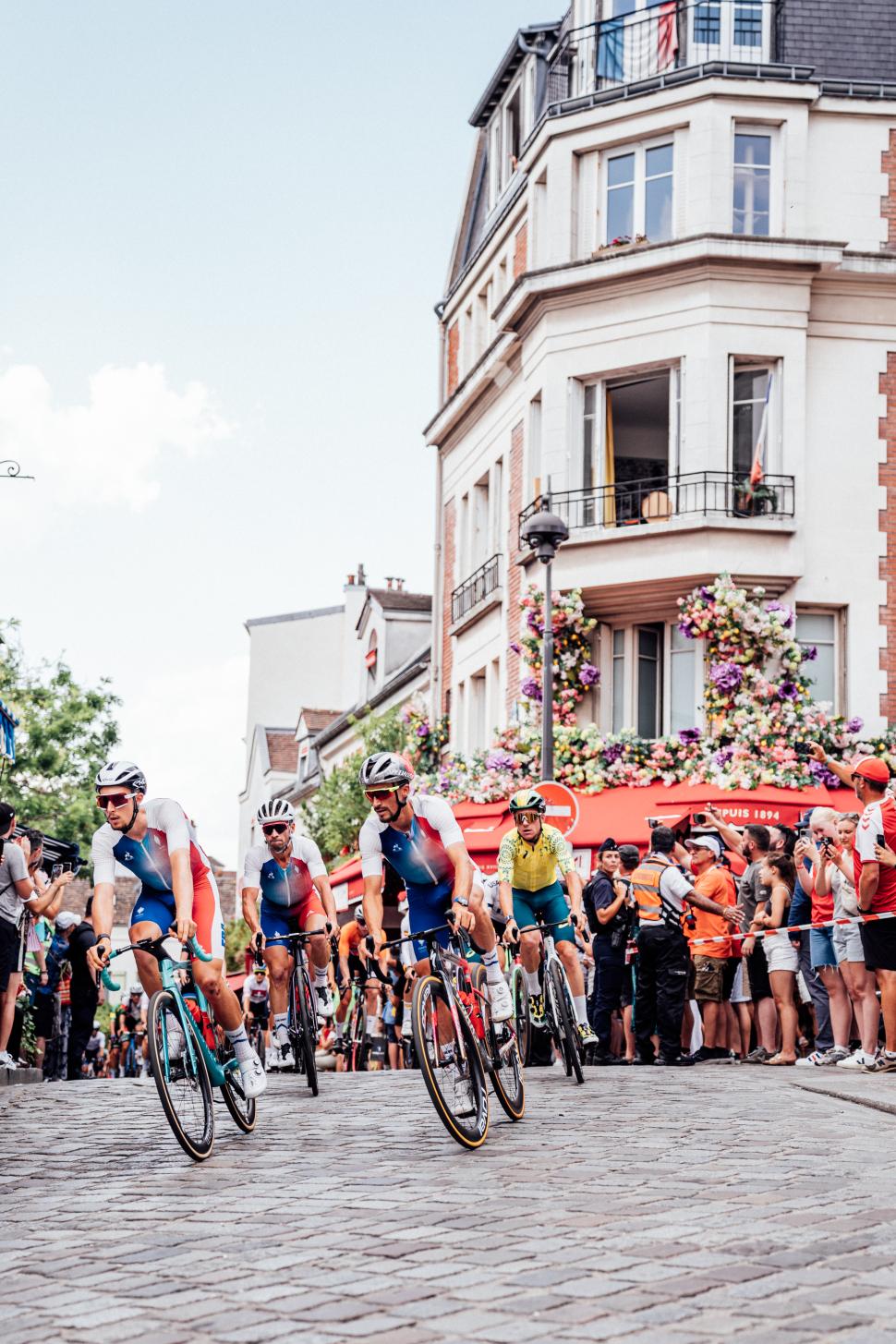
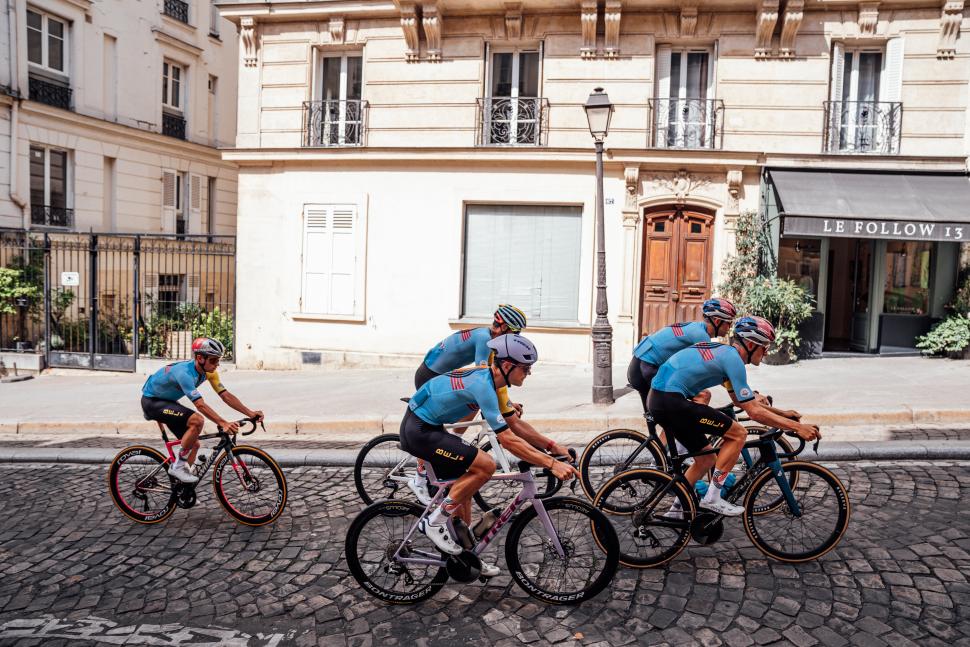
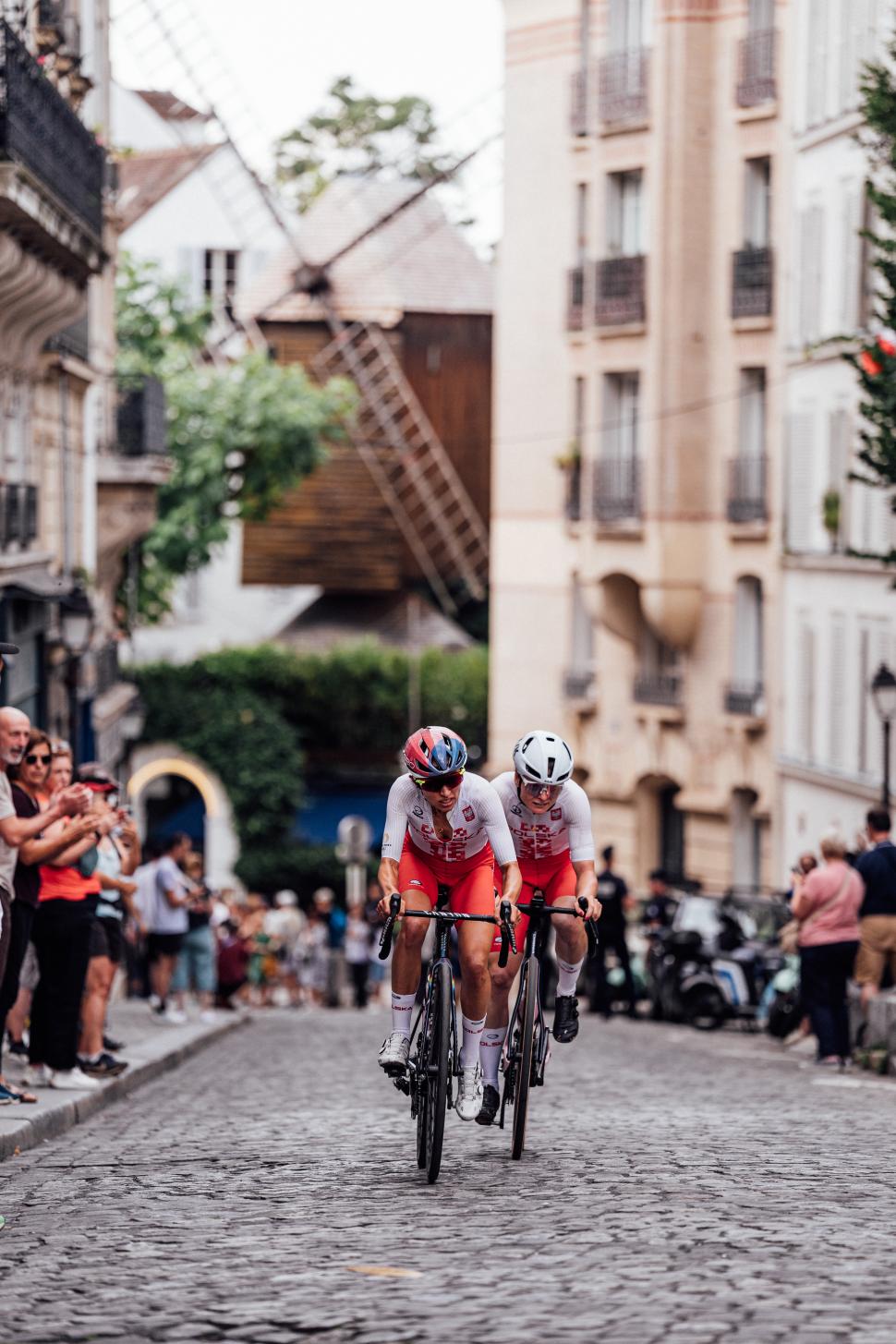
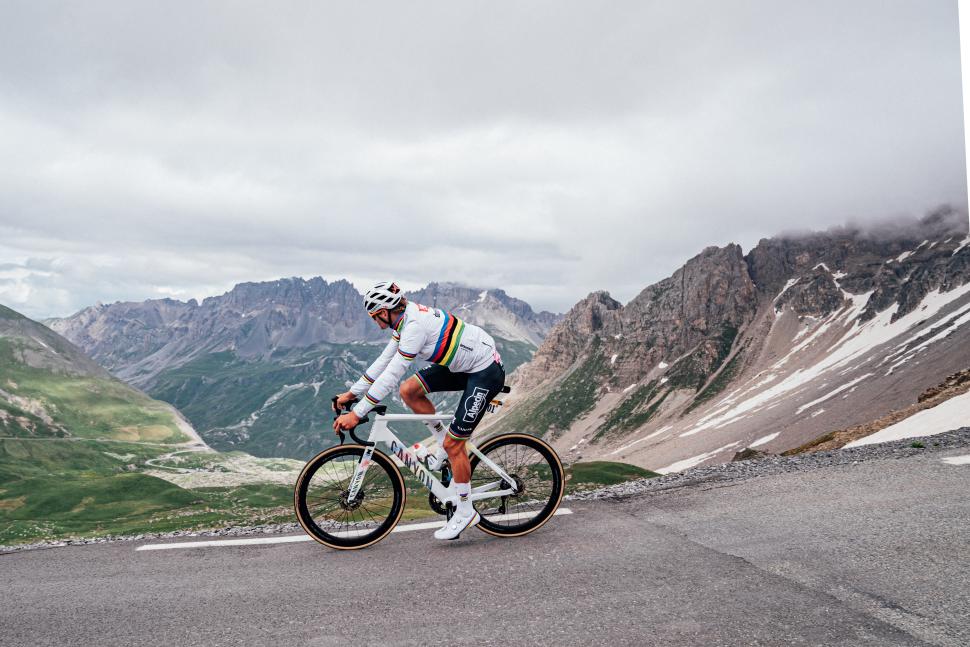
Add new comment
6 comments
The recon ride probably lasted longer than the amount of coverage of the race
the BBC gave us - 1 hr 40 min, and 10 minutes of that was the neutralise rollout. There was a period of 140km with no TV coverage. And more than 1 hr 15 min was relegated to the 'squint your eyes and it still won't look remotely sharp' Red Button, leaving just 23 minutes of HD.
The BBC seems obsessed with covering Simone Biles over anything else in these Olympics. Did I miss the report of her getting British citizenship?
(And yes, I know they should be showing a range of successes from multiple nations, but the Biles love-in is extreme).
Hers is an incredible story of recovery from appalling abuse and physical incapacity, it transcends nationality and even sport, it's no wonder the BBC wanted to cover it in depth. They went just as mad on Andy Murray's final appearances, why aren't you complaining about that?
UK athlete, UK TV coverage. Besides, I didn't suggest her participation shouldn't be covered but, like the swimming events, it takes up a particularly large percentage of the air time, especially when the BBC has reduced coverage to just one channel at a time from the multi channels they used to provide, thanks to a combination of cutbacks and shoving so much online nowadays. I used to believe the BBC should remain non-commercial but am coming round to thinking it should now be self-funding rather than paid for by a licence you have to pay for live TV even if you don't watch the BBC.
It has more to do with someone else winning the rights this time around
Ah, I didn't realise Discovery had been awarded the rights from 2016 (which I've just read about), with the Beeb sub-licencing from Discovery. But then the BBC would hardly make a big deal of telling everyone! And last year's deal pretty much means the same coverage till 2032. Still, my blaming of cutbacks arguably still applies as they presumably couldn't bid enough.
Maybe he should have tried to convince the whole recon ride to "forget" their head units.